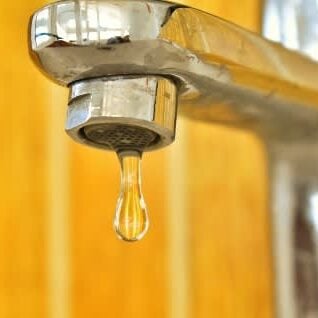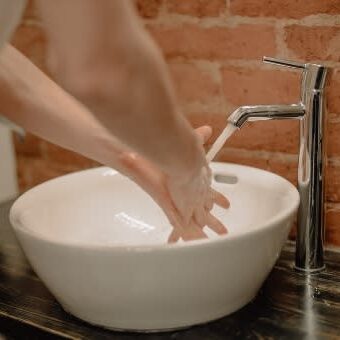Many or all of the products and brands we promote and feature including our ‘Partner Spotlights’ are from our partners who compensate us. However, this does not influence our editorial opinion found in articles, reviews and our ‘Best’ tables. Our opinion is our own. Read more on our methodology here.
What our Nerds say about business water
As a small business owner, you’ll likely be familiar with shopping around for your electricity or gas. However, did you know that you can also do the same with your business water?
Since 2008 in Scotland, and 2017 in England, business water has switched from its previous regional structure to a competitive market, where businesses can pick and choose their supplier based on what is best for their needs.
Just as is the case with business energy, wholesalers maintain the network and sell water and wastewater services to retail suppliers, which then package these services and sell them on to customers.
Switching business water suppliers is another way you can potentially save on costs, while also opting for a provider that might better suit your organisation’s needs.
If you want a bit more information about how you switch business water suppliers, read on below for our detailed guide and Frequently Asked Questions.

Can I change my business water supplier?
If your premises are primarily used for business purposes, then in both England and Scotland you should be eligible to switch your business water supplier.
In England, Open Water – the programme that changed the business water landscape – is run by the Water Services Regulation Authority (Ofwat), the Department for the Environment, Food and Rural Affairs (Defra), and the Market Operator (MOSL). In Scotland, the regulator is the Water Industry Commission for Scotland (WICS).
If your water supplier is based in Wales, however, you can only switch business water suppliers if your business uses more than 50 megalitres of water a year.
And if you are based in Northern Ireland, your business water services will automatically be supplied by Northern Ireland Water (NI Water), and you will be unable to switch providers. You will need to notify NI Water, however, if you change from a domestic to non-domestic customer, or vice versa.
Why should I switch business water suppliers?
As with business energy, one of the main reasons to switch business water suppliers is to potentially save money on your running costs.
However, when looking to switch providers, you should also take into consideration the following:
- the quality of the customer service for each retailer
- how the retailer can tailor your contract to suit your specific business needs
- what services, such as water efficiency advice, the retailer offers alongside your supply
- what services it provides for businesses spread across multiple premises – for example, consolidated billing
How do I switch my commercial water supply?
The process itself is pretty straightforward and follows many of the same steps as switching business energy suppliers.
- Work out the details of your current business water use, including your annual consumption and your supply point identification number (SPID).
- Look at the terms of your current contract, including whether you have different providers for water supply and wastewater removal.
- Compare the rates and tariffs offered by licensed water retailers to find the best fit for your business.
- Agree a deal with your chosen retailer. You can also try to negotiate a better contract with your existing retailer.
- Confirm your switch if that is what you have chosen to do. You will have a seven-day cooling-off period as the switch is being processed if you want to change your mind.
Will I save money if I change business water suppliers?
Whether or not you save money when switching business water suppliers will depend on the cost of your current rates, and what deals you are offered at the time of your search.
Make sure you thoroughly compare providers when looking for a new contract, and remember that the basic business water unit rate, and the overall cost, isn’t the only reason to switch suppliers. It is just as important to consider how well suited the provider is to your specific business’s needs.
Are business water rates cheaper than domestic?
Although your business water rate may well be cheaper than your domestic water tariff, your bills will likely still be more expensive, since there is a good chance you will be using more water than a typical household. The same is normally true of business electricity and gas.
The following factors will usually help determine what business water rate you are offered:
- your business sector
- the value and size of your business premises
- the region your business falls in
- your annual water usage
- your business credit score

How is my business water bill calculated?
Most businesses will be charged for their water based on their meter readings, reflecting their volumetric usage. If your premise doesn’t have a meter, you will instead be charged a flat rate based on the value of your property.
In both cases, you will also need to pay a fixed standing charge. If you are metered, the cost of this charge will depend on the size of your meter. If you are unmetered, it will be a fixed amount dictated by your supplier.
There will also be metered and standing charges related to the removal of wastewater. This includes surface water, highways drainage, foul sewage and trade effluent. Effluent, or liquid waste, is water contaminated with, for example, fats, oils, grease, chemicals or food waste. The strength of your trade effluent will in part determine the cost of these charges.
You will be billed separately for wastewater removal if you use different water supply and wastewater retailers.
Other additional costs found on your business water bill can include disconnection and reconnection fees, and meter installation, repair or replacement charges.

How much water do businesses typically use?
Due to the sheer variety of professions and organisations using this most basic of utilities, it is hard to come up with a figure for the average water usage for businesses in the UK. Different businesses will have vastly different water needs.
South Staffs Water, a water supply company based in the West Midlands, estimates that a single employee in an office building uses 50 litres of water a day.
This usage was broken by into:
- toilet flushing: 43%
- washing: 27%
- urinal flushing: 20%
- canteen: 9%
- cleaning: 1%
You may not think of your business as particularly water intensive but, as you can see, even the most basic of bodily functions play a huge part in contributing to your water bills.
How can I make my business more water efficient?
Just as you would look to improve the efficiency of your energy usage to save on business gas and electricity, the same kinds of steps can be taken to help reduce your water footprint.
Conduct a water audit
Similar to how you would carry out an energy audit to work out where you can cut down on your gas and electricity bills, a water audit can help you find how your business can reduce its usage and save money.
Install a water meter
A water meter can be an invaluable tool when conducting an in-house water audit. For example, if you are seeing your water usage, and therefore your bills, increase for no obvious business-related reason, you may have a leak.

Check for leaks
Each errant drop from a broken pipe or faulty tap is contributing to your bill, so even if you don’t have a water meter to monitor, it is a good idea to carry out a survey checking for leaks at your business premises.
Look into water-saving devices
To more actively cut down on your usage, you could look into installing water-saving devices, such as automatic sensor taps or a cistern-reduction device.
Hire a specialist auditor
If you are after something more thorough, you may want to consider hiring a specialist to carry out a comprehensive audit. This isn’t free, however, and may be better suited to larger businesses.
Get your employees on board
Saving water, as with saving energy, is a team effort. Educating your team on how they can reduce their personal water usage at work will help with your overall costs.
Business Water FAQs
Your business credit score may affect which business water rates you are offered. A strong credit history may give you a better chance at accessing cheaper tariffs. At the same time, a low credit score may affect your choice of rates.
According to the Water Services Regulation Authority, or Ofwat, there are currently 32 privately owned companies across England and Wales providing domestic and non-domestic customers with water, sanitation and drainage services.
In Scotland, there are currently 17 water suppliers for businesses to choose from, based on Scotland On Tap.
In Northern Ireland, all businesses are supplied by Northern Ireland Water (NI Water).
Your most recent water bill should show who your business water supplier is. If you haven’t got a bill to hand, you can contact any water retailer and it will tell you which supplier is registered to your business premises.
Yes, businesses of any size can change their water supplier, as long as they meet the geographical eligibility requirements, and use their premises primarily for business purposes.
To be able to get business water rates as a sole trader, you would need to be based in premises that are primarily used for business, rather than domestic, purposes. For many sole traders, this may not be the case.
The following business water suppliers are currently available in Scotland:
- Anglian Water Business
- Bluewater
- Brightwater
- Business Stream
- Clear Business Water
- Commercial Water Solutions
- Everflow Water
- Intelligent Business Water
- Wave
- Pennon Water Services
- Pinnacle Business Water
- SES Business Water
- Pure Utilities
- Water Plus
- Veolia Water
- Water Business
Like an energy audit, a water audit is a way to assess your water usage, and cuts to consumption and improvements to efficiency can be made. You can either carry out a basic water audit yourself, or pay for a comprehensive assessment by a third party.
Trade effluent is defined as any liquid that is produced, and then sent into the sewerage system, by a business, industrial or trade process.
Examples of trade effluent include water contaminated with:
- fats, oils and greases
- chemicals
- detergents
- food wastes
- solids
- heavy metal rinses
To discharge trade effluent into the sewerage system, you will need to obtain a legal document called a ‘trade effluent consent’ from your supplier.
It is possible to claim back on overpaid water bills. However, you may require a water audit to assess whether or not you have been overcharged in the past. There are no time limits on a refund if you have overpaid your business water bills.
Your business water supplier can claim money back if you have underpaid for water in the past. However, Ofwat states that the maximum back-billed period is 24 months.
If you don’t keep up with your payments, your business water may be disconnected by your supplier, as long as there is no domestic use at your premises.
While the business water market became deregulated in Scotland in 2008, and England in 2017, both are still regulated by independent bodies. In Wales, only certain businesses can switch business water suppliers, while in Northern Ireland, the business water market is yet to be deregulated.
In England and Wales, there are three bodies that regulate the market: the Water Services Regulation Authority (Ofwat), the Department for the Environment, Food and Rural Affairs (Defra), and the Market Operator (MOSL). In Scotland, the regulator is the Water Industry Commission for Scotland (WICS). And in Northern Ireland, the regulator is the Utility Regulator.



